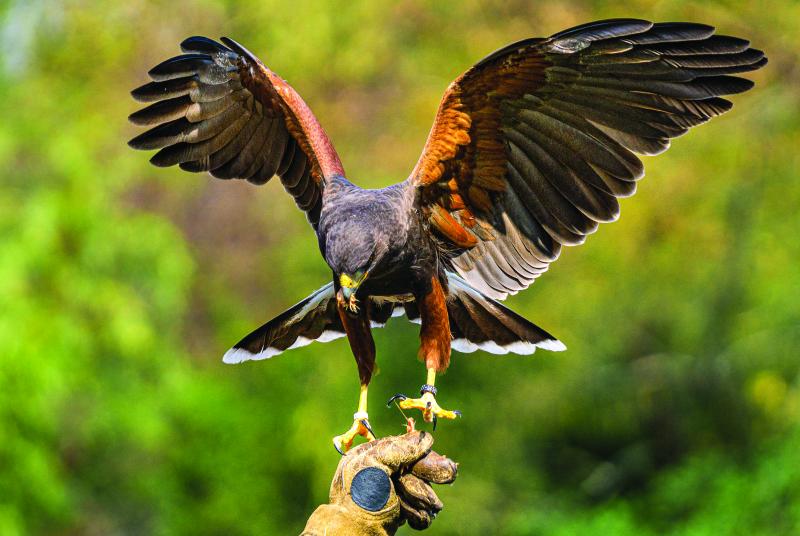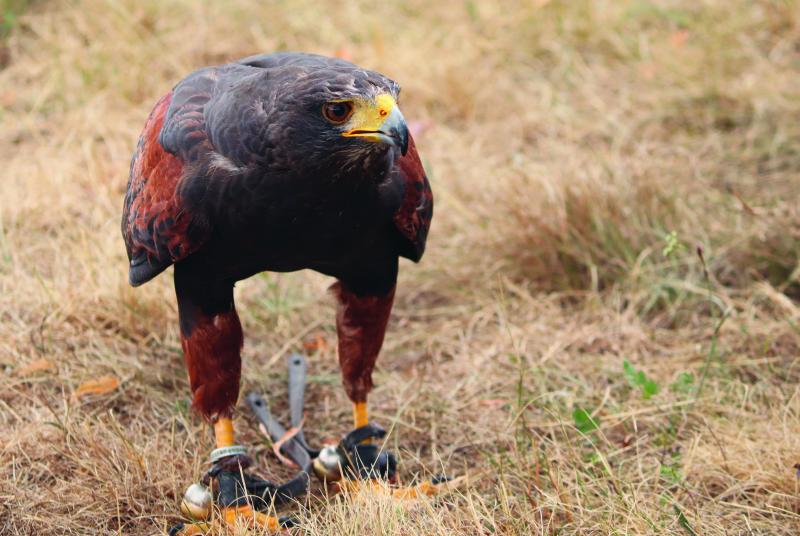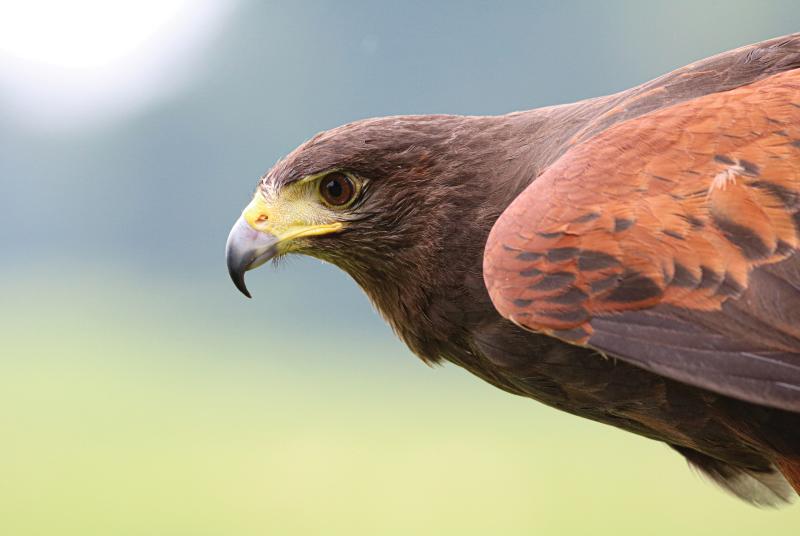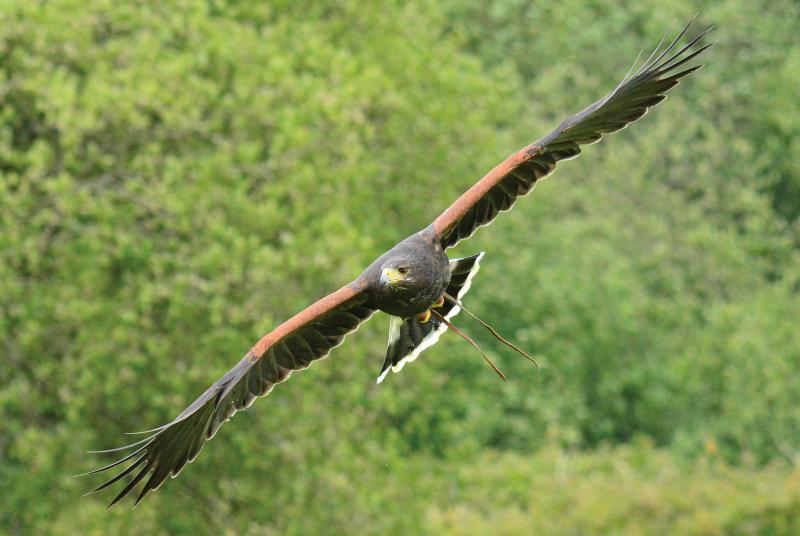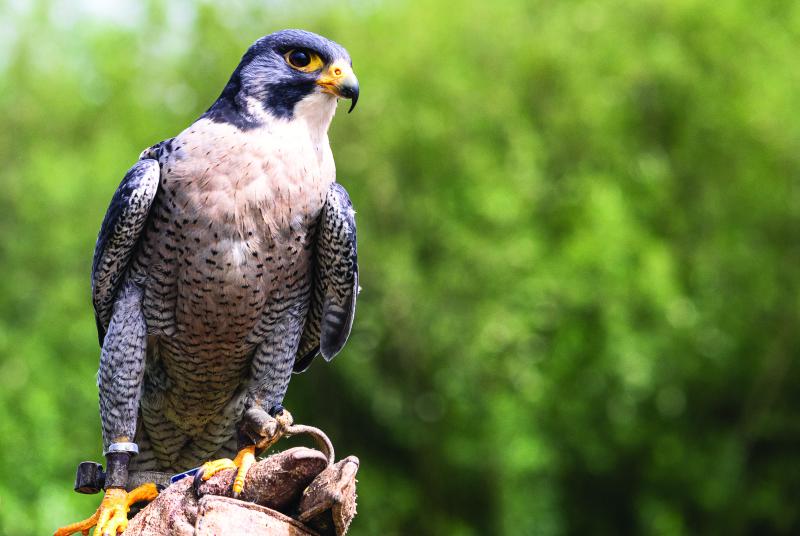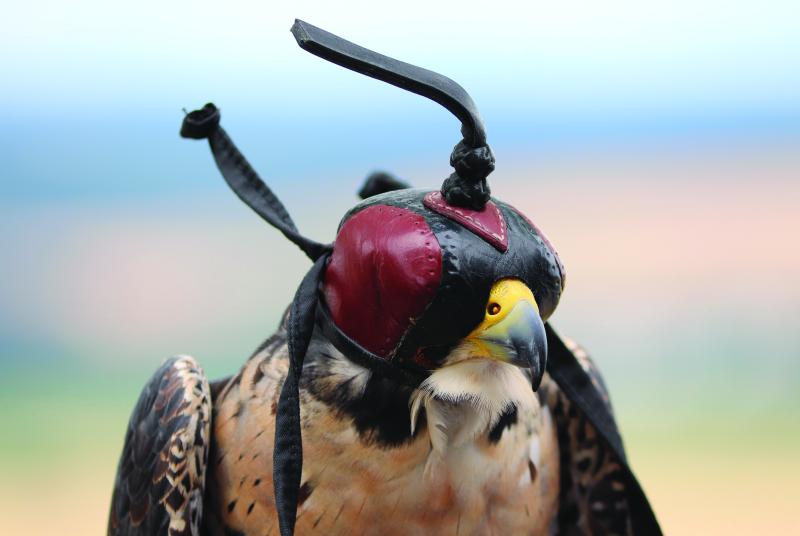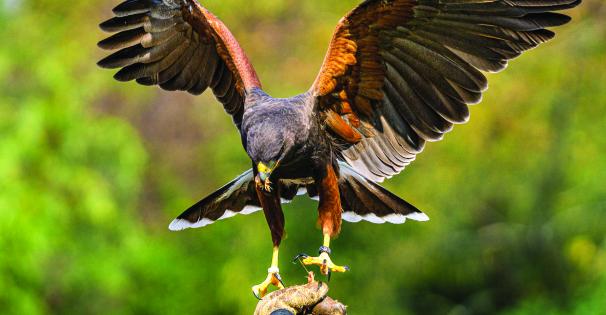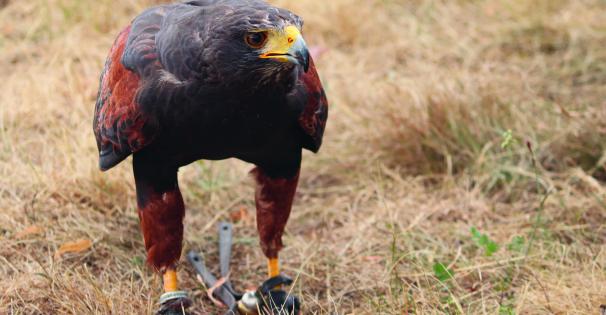
Falconry has been around for centuries, dating back to 1000 BC, and has been a staple in many cultures. There have been many types of falconers over the years, from lowly peasants to kings and emperors. Falconry was first introduced to the United States in 1622 by England.
The sport has evolved over the years; however, the bond between a hunter and their bird has remained the same. Falconry is a very demanding and tedious sport. Below you'll find more information on falconry and how to get involved. If you have any questions and/or need assistance with anything, feel free to contact the falconry coordinator using the info in the Contact Information section.
